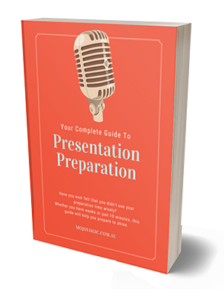Is there any point in public debate in a society where hardly anyone has been taught how to think, while millions have been taught what to think?
-Peter Hitchens
Rhetoric may be defined as the faculty of observing in any given case the available means of persuasion. This is not a function of any other art.
– Aristotle
Rhetorical techniques to persuade the voters
It’s election season and we are called upon to have our say. But, based on what?
The voter is constantly bombarded by messages in multiple forms, using multiple media. Campaign tactics abound as speeches, debates, interviews, sound bites, advertisements, vox pops and testimonials.
If only the ordinary person had a way to distinguish fact from spin. Perhaps some guidance from the ancient Greeks is just what we need.
In the search for truth Aristotle determined rhetoric to be a neutral tool – it could do the greatest good or the greatest harm.
When coupled with political aspirations, and a bit of air time, we experience the constant bombardment of both. In the search for truth, we can learn a thing or two from the Aristotle and his mentor, Plato.
Rhetoric is the art of discourse. Are we hearing well-crafted arguments, or verbal nonsense?
Three Pathways to Persuasion
1. PATHOS – appeal to the emotion of the audience
Speakers use pathos when they attempt to connect with an audience on an emotional level. They are seeking to activate a ‘feeling’ response – it could be anger, sadness, jealousy, longing, pride or fear.
Techniques:
- passionate delivery
- metaphor
- storytelling
- personal revelation
- touch
Triggers:
- music (anthems)
- images
- body language
- displays of emotion
Examples:
- The vitriol of Donald Trump’s promise to build a wall along the US / Mexico border
- Justin Trudeau invokes the spirit of his father, Pierre Elliott Trudeau during a foreign policy debate
- Gough Whitlam‘s famous dismissal speech in 1975 – fueled by the emotional response of the crowd
2. ETHOS – a sense of credibility and trust
Techniques:
- portray confidence and authority
- well managed personal brand
- verbal and non-verbal affect
- highlight similarities and minimise differences
Triggers:
- tone
- language – formal vs informal; jargon vs colloquial
- name dropping
- reputation
- testimonials
Examples:
- Malcolm Turnbull just outright claims authority as he ousts Abbott
- The ongoing image management of Hillary Clinton
- Bill Shorten repeatedly references the legacy and promise of the Labor party in his budget response
3. LOGOS – sound logical reasoning
Techniques:
- structured arguments
- deductive reasoning
- use of evidence
- use of statistics
Triggers:
- starting with indisputable facts
- reference experts or scientists
- charts
Examples:
- Malcolm Turnbull just outright claims authority as he ousts Abbott
- David Cameron’s structured approach to tackle extremism
- Obama arguing the merits of his health insurance program by laying out the facts and their impact
But beware the illogical argument. Read the full post Your Argument is Invalid – 5 logical fallacies in business, politics and media.
So What?
A final word from a source that reminds us of the power of speech…
The broad masses of a population are more amenable to the appeal of rhetoric than to any other force.
– Adolf Hitler
Persuasion is both art and science.
Aristotle teaches is to remain vigilant to the pathways to persuasion and to appreciate that rhetoric is neither good nor bad. It is, however; a powerful tool that must be wielded with the appropriate respect.


